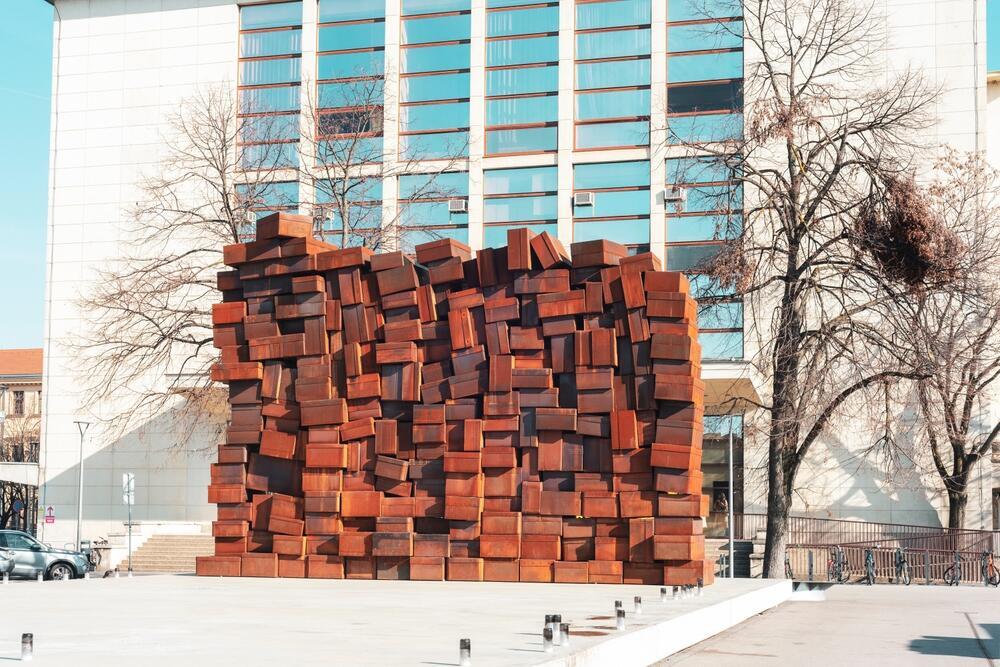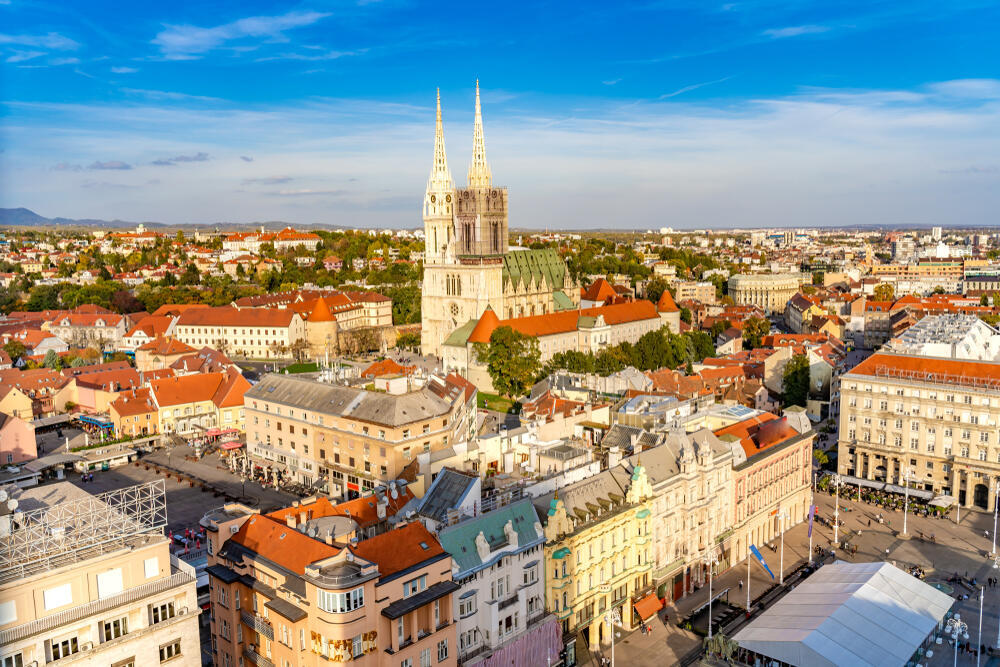Getting your Trinity Audio player ready...
Evidence suggests that Jews settled in Croatia as early as the Roman period. Records from the 14th century indicate a few Jewish families lived in Zagreb, but it wasn't until 1781 that Austrian Emperor Joseph II issued the "Edict of Tolerance," granting full rights to Jews. Since then, Jews began to settle in the area. By the late 1700s, the first Jewish community was established in Zagreb, led by a Jewish merchant named Jacob Stiegler.
Initially, the Jewish community members of that time were financially limited, and it took about 60 years to build their first synagogue. Most Jews living in Zagreb at that time were Ashkenazi, but after Austria's conquest of Bosnia, a few Sephardic Jews began settling there. During those years, social life in Zagreb was open and characterized by mutual respect and tolerance towards all religions. Because of daily interactions with the local community, intermarriage rates soared. As a result, many, particularly Jewish women, converted to Christianity.
During the interwar period, the Jewish community in Zagreb thrived. Jewish businesses flourished, and Jews began to influence the social and political atmosphere. However, World War II and the Holocaust nearly obliterated the Jewish community in Zagreb. In 1998, efforts were made to revive the Jewish community in Zagreb, and a new rabbi arrived to rekindle Jewish prayers, weddings, and traditions. Historically, the Jewish community in Zagreb was not isolated or confined to a ghetto, and this openness extended to their burial practices. The cemetery, divided into three sections, now has mixed burials, including Christians, Muslims, and Jews.
Today, Zagreb hosts three Jewish communities: the oldest being the Jos community, along with Beit Israel and Chabad. Rabbi Pinchas and his wife, Raizel Zaklas, have been in Croatia for 19 years. Initially part of the Jos community, they soon realized a desire among local Jews for more engagement in community life, events, and holidays, leading to the establishment of a Chabad House. For a decade, Rabbi Zaklas and his wife have fostered a vibrant, inclusive community filled with love. They have six children, three in Israel and three in Zagreb. One child attends a virtual school, another a public Jewish school, and the youngest is in a local nursery.
At the Jewish school, 70% of students are non-Jewish. Parents choose this school for its high educational standards, small class size (around 100 students), and because it offers an alternative to Catholic schools without mandatory prayers or kippahs. The food served at the school is kosher, and all students enjoy a nutritious kosher meal daily. The school welcomed me, and Abishag Rosenbaum Nehemiah, an Israeli who moved to Zagreb with her husband, a dentistry student, greeted me. Abishag teaches the children twice a week and assists the rabbi and rebbetzin in organizing community events and fundraising. She gave me a tour, introducing me to the principal and staff.
A short drive from the Jewish school is the Chabad Center. The center houses a kindergarten offering afternoon classes for young children. There's also a room for teenagers who come for daily activities. Rabbi Zaklas emphasized their focus on leadership, equipping young people with skills and sending them to seminars to pass on their knowledge to future generations. The center includes a mikveh open to all community women, lovingly managed by Reizy without judgment. She also conducts classes, organizes women's events, and prepares brides for their wedding day.
Rabbi Zaklas offers Torah classes and prepares boys for their bar mitzvahs. He used to serve as the community's shochet, but now all kosher poultry and meat are imported from neighboring countries. There is no mohel in the community, but they use the services of certified mohels from nearby countries. The rabbi and his wife open their home daily, especially on Shabbat and holidays, for locals and the thousands of tourists who visit Zagreb each year. They also provide kosher meals for yachts, cruise ships, and airplanes with prior arrangements.
The couple not only works for the community members but also stays connected to events in Israel. Recently, they hosted evacuees and families of hostages from Israel, offering them warm meals and a sense of home. After the October 7 tragedy, they established the "Be'eri Learning Center" for students to gather, share, and remember victims. Avishag shared that the center was once a "Yad Sarah" branch providing medical equipment, but post-October 7, it became a student center for Israeli students.
The name "Be'eri Learning Center" evokes solidarity with Israelis, even when students are miles away during their studies. The center is a quiet study place for all students, meeting their needs with comfortable furniture, suitable lighting, and a pleasant atmosphere. They've even opened a small shop offering Israeli snacks. The center also includes a kosher store with strictly kosher meat and dairy products.
Another recent initiative was an empty Shabbat table exhibit set up in a central location in Zagreb, opposite the national theater, to raise awareness about the hostage situation. Not only the Jewish community but also Zagreb's Christian community held an event supporting Israel and Jewish communities. Rabbi Zaklas says he feels safe living as a Jew in Zagreb, which is considered a safe place. He notes mutual respect among religions, with no signs of rising antisemitism.
During Hanukkah, a menorah stood alongside a Christmas tree in the main square. A businessman I met echoed the rabbi's sentiments, saying everyone in Zagreb contributes to making it a better place through mutual respect and inclusion. In these challenging times, may more countries embrace inclusivity and respect like Croatia.
- Ayelet Mamo Shay is a businesswoman, chairwoman of the Gibraltar-Israel Chamber of Commerce, a journalist, international speaker and the author of the popular book Relocation Darling Relocation!



